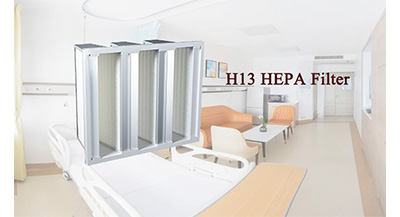 July 31, 2024
July 31, 2024
In healthcare settings, maintaining a clean and safe environment is crucial. One key aspect of this is air quality, as airborne contaminants can pose serious health risks to patients, staff, and visitors. Effective air filtration systems in hospitals are vital to reducing the spread of infections and ensuring overall safety. This article explores the importance of air filtration in hospitals, the types of systems used, and the benefits they provide.

The Importance of Air Filtration
Airborne pathogens, such as bacteria, viruses, and fungi, can easily spread through hospital air, leading to hospital-acquired infections (HAIs). According to the Centers for Disease Control and Prevention (CDC), HAIs affect 1 in 31 hospital patients on any given day. Effective air filtration helps to minimize the risk of these infections, creating a safer environment for everyone.
Types of Air Filtration Systems
1. High-Efficiency Particulate Air (HEPA) Filters: HEPA filters are capable of capturing particles as small as 0.3 microns with 99.97% efficiency. These filters are commonly used in critical areas such as operating rooms, intensive care units (ICUs), and isolation rooms.
2. Ultraviolet Germicidal Irradiation (UVGI): UVGI systems use ultraviolet light to kill or inactivate microorganisms. These systems are often used in conjunction with HEPA filters to provide an additional layer of protection.
3. Activated Carbon Filters: These filters are effective in removing gases and odors from the air. They are often used in areas where chemical fumes or unpleasant odors may be present.
4. Portable Air Cleaners: In situations where permanent installations are not feasible, portable air cleaners equipped with HEPA filters can be used to improve air quality in specific areas.
Benefits of Effective Air Filtration
1. Reduced Infection Rates: By capturing and eliminating airborne pathogens, air filtration systems significantly reduce the risk of HAIs, protecting both patients and healthcare workers.
2. Improved Patient Outcomes: Cleaner air contributes to faster recovery times and better overall health outcomes for patients, particularly those with compromised immune systems or respiratory conditions.
3. Enhanced Comfort: Effective air filtration improves the overall air quality, reducing odors and irritants, which can create a more comfortable environment for patients and staff.
4. Compliance with Regulations: Hospitals must comply with stringent air quality standards set by organizations such as the CDC, the Environmental Protection Agency (EPA), and the American Society of Heating, Refrigerating, and Air-Conditioning Engineers (ASHRAE). Proper air filtration helps ensure compliance with these regulations.
Air filtration in hospitals is a critical component of infection control and overall environmental safety. By investing in advanced air filtration systems, hospitals can protect patients, staff, and visitors from airborne contaminants, reduce infection rates, and improve health outcomes. As technology advances, hospitals must continue to prioritize air quality to provide the safest possible environment for all.

